On this dayMay 03, 1913
California's Alien Land Laws
In the late 19th century, in the wake of the Chinese Exclusion Act of 1882, Japanese immigrants began arriving in California in search of opportunity, enticed by the promise of employment with mining companies, agricultural producers, and railroads.
The number of Japanese immigrants increased at the beginning of the 20th century and thousands found work as migrant laborers for white farmers. Some came from the newly annexed U.S. territory of Hawaii, where they had been indentured servants on huge sugar cane plantations owned by white landowners.
Over time, many of these new Asian residents of California had saved enough money to lease, rent, and even buy hard-to-cultivate land that no one else seemed to want. Working from sunup to sundown, they transformed swampland and deserts into vineyards and fields of strawberries, celery, beets, tomatoes, and other vegetables.
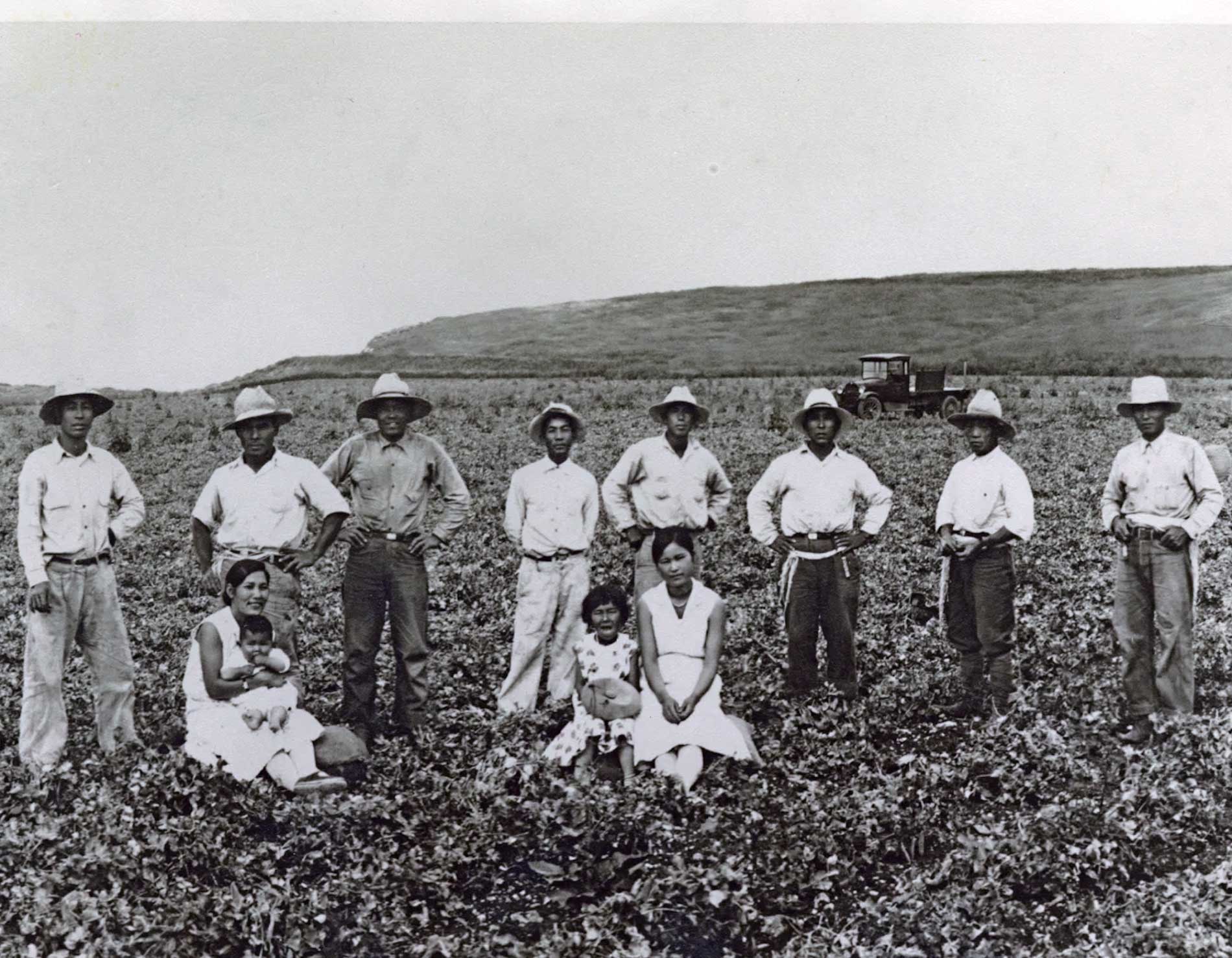
Japanese farmers and their family members in Palos Verdes Estates, California. (Palos Verdes Library District Local History Center Collection)
For Japanese people, as for immigrants from other nations, land was a foothold on the American dream. Eager to assimilate, Japanese farmers took pains to learn English. They sent their children to American schools, joined Christian churches, and flew the American flag on the Fourth of July.
But as the fruits and vegetables they produced on a small percentage of the state’s total acreage met a growing consumer demand in Los Angeles and other cities, Japanese farmers came to be viewed by white landowners as an economic threat. Their immigrant success became a tool for white politicians, newspaper publishers, and labor unions intent on whipping up anti-Asian fervor—and ending Japanese immigration.
“The Japanese have invaded the central valleys of California,” California Senator James D. Phelan, who would later campaign for reelection with the slogan “Keep California White,” wrote in 1912 to Democratic presidential candidate Woodrow Wilson. “The white man is thus driven off the land…The Japanese are a blight on our civilization.”
In 1913, Japanese residents made up just 2% of California’s 2.5 million people.
On May 3, 1913, California enacted the Alien Land Law, designed to deny Japanese families their foothold in America by denying them the right to own land. The law was tightened in 1920 and 1927 to bar Asian immigrants, their American-born children, and even corporations run by Asian immigrants from leasing and owning land. The penalty for conspiring to evade the law was up to two years in prison. The law was supported by the California press, the Japanese and Korean Exclusion League, and the Anti-Jap Laundry League. Those two groups, founded by labor unions, claimed tens of thousands of members.
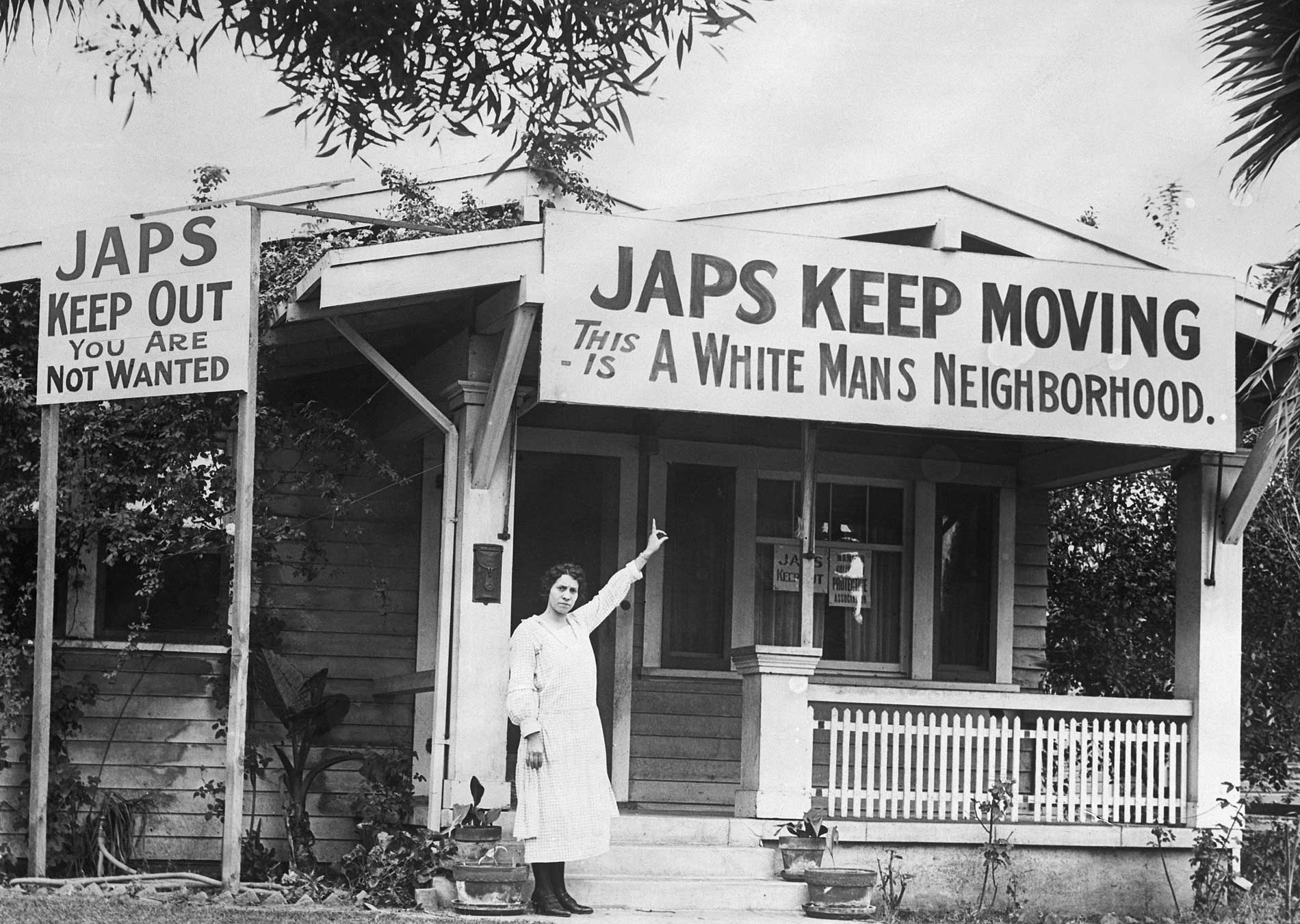
A white woman points to an anti-Japanese sign above her house, circa 1920. (Fotosearch/Getty Images)
The Alien Land Law targeted people like Jukichi Harada, who named his “All American” restaurant for his hero, George Washington, and Haruye Masaoka, a widow who had five sons who served in a decorated regiment of Japanese American volunteers in World War II, with one dying in the line of duty. The law also targeted the Oyamas, whose American-born son Fred had wanted to enlist and “defend [his] country”—until the state tried to seize the family’s land.
The Alien Land Law didn’t specify Japanese immigrants; it barred “aliens ineligible for citizenship” from owning land or leasing it for more than three years. But thanks to previous immigration laws, “aliens ineligible for citizenship” in that era meant Asian immigrants. After the 1882 Chinese Exclusion Law ended immigration from China, the Alien Land Law targeted nearly 40,000 Japanese people living in California. It empowered prosecutors to file escheat actions against Japanese residents, asking courts to turn their land over to the state.
While the law’s proponents argued it was concerned with economics, not race, one of its authors, California State Attorney General Ulysses Webb, acknowledged the real motive in a 1913 speech before the San Francisco Commonwealth Club: “The fundamental basis of all legislation upon this subject, state and federal, has been, and is, race undesirability.” The 1913 law, he said, “seeks to limit their presence by curtailing their privileges which they may enjoy here; for they will not come in larger numbers and long abide with us if they may not acquire land.”
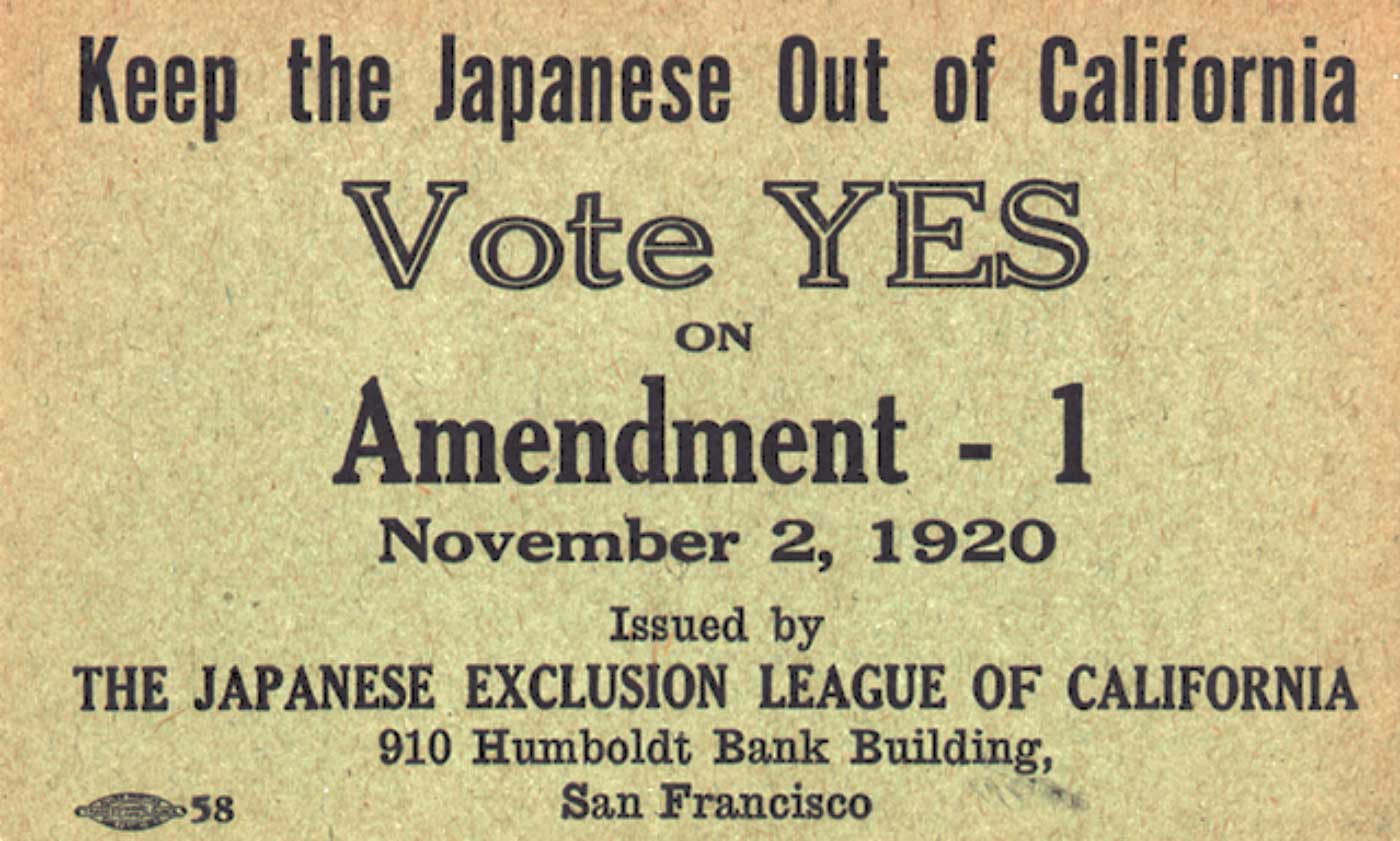
A flier made by the Japanese Exclusion League of California urging white residents to vote in favor of the amended 1920 Alien Land Law. (National Museum of American History)
President Wilson reassured Japan of his commitment to maintaining cordial relations, but he did not interfere with California’s anti-Japanese legislation. Under pressure from Sen. Phelan, Mr. Wilson had, during his campaign, issued an anti-Asian position statement drafted by the senator:
“In the matter of Chinese and Japanese Coolie immigration, I stand for the National policy of exclusion (or restricted immigration). We cannot make a homogenous population out of people who do not blend with the Caucasian race…Their lower standard of living as laborers will crowd out the white agriculturist…Oriental coolies will give us another race problem to solve and surely we have had our lesson.”
Decades later, a Supreme Court justice pointed out that the law’s actual enforcement belied its defenders’ claim that it did not target any racial group: of 79 escheat cases filed under the law, 73 were against people of Japanese ancestry. The law, Justice Frank Murphy wrote, was an “attempt to legalize racism.”
One of Many Anti-Asian Laws
The Alien Land Law was part of a long line of anti-Asian, anti-immigrant measures imposed by American judges and lawmakers since 1790, when Congress decreed that only white people could become naturalized U.S. citizens. In 1854, California barred people of Asian ancestry from testifying against white people and, in 1880, from marrying white people. In 1882, the federal Chinese Exclusion Act barred Chinese people from immigrating to the U.S. In 1906, San Francisco schools forced Japanese students—there were only 93 of them in the entire system—to attend a separate school with Korean students out of fear that they would come in contact with white students. “Brown Men an Evil in the Public Schools” one newspaper headline warned. In 1917, Congress passed the Immigration Act of 1917, also known as the Asiatic Barred Zone Act. Intended to prevent “undesirables” from immigrating to the U.S., the act primarily targeted individuals migrating from Asia.
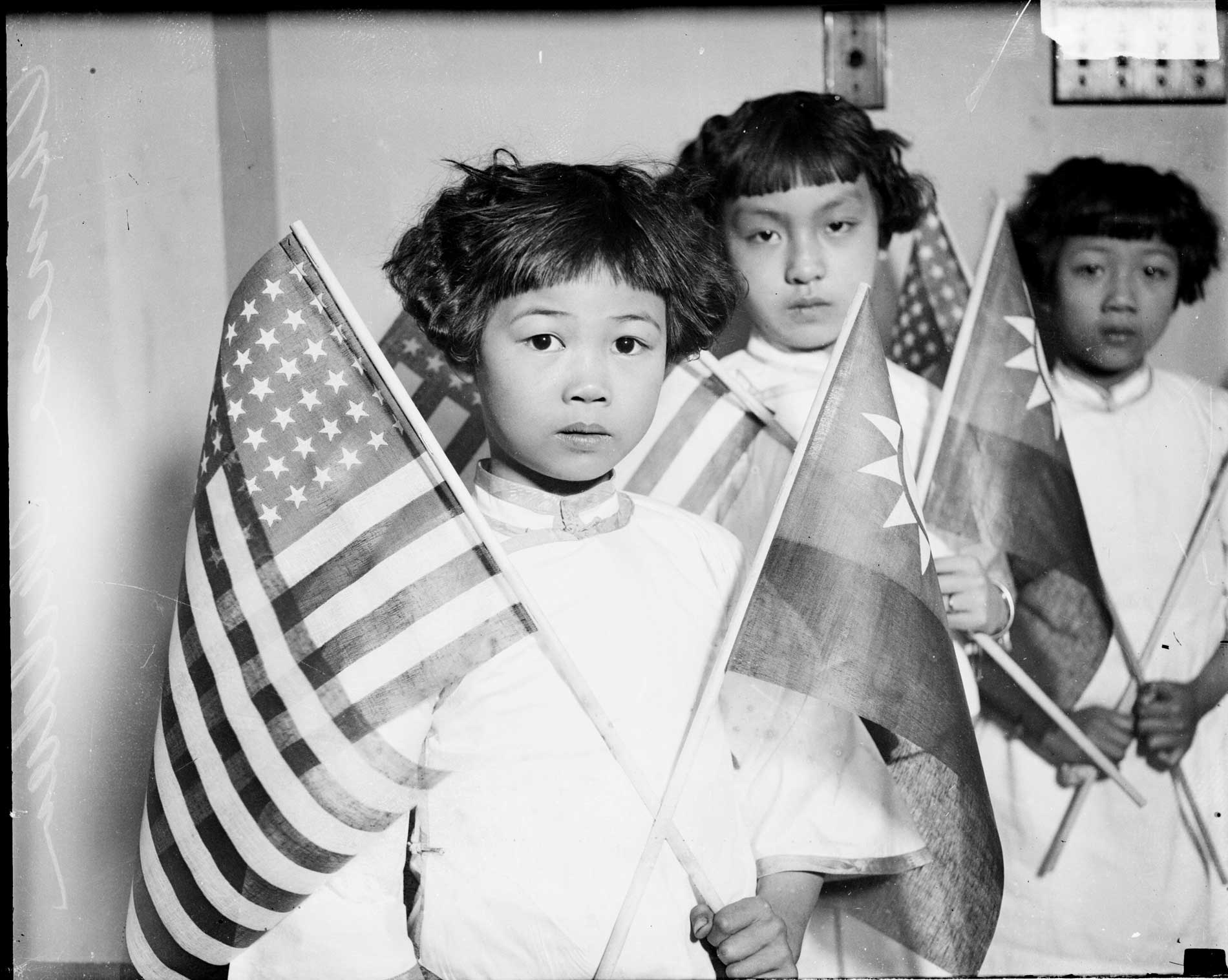
Chinese children in Chicago, Illinois, each hold an American and Chinese flag. (Chicago Sun-Times/Chicago Daily News collection/Chicago History Museum/Getty Images)
The Alien Land Law hinged on Japanese immigrants being ineligible for citizenship. Its proponents were elated when the Supreme Court, in 1922, denied citizenship to Takao Ozawa, who had immigrated from Japan 28 years earlier. After graduating from high school in San Francisco and attending college, Mr. Ozawa had moved to Hawaii, where he worked for an American sugar company, married a U.S.-born woman of Japanese ancestry, and sent his five children to American schools.
But Mr. Ozawa could not become a citizen because he was “clearly of a race which is not Caucasian,” Justice George Sutherland—a British immigrant—wrote in the court’s opinion. He insisted the decision did “not imply any suggestion of…racial inferiority.”
State after state copied California’s Alien Land Law. Oregon, Idaho, Montana, Arizona, Kansas, Texas, New Mexico, Louisiana, and Delaware enacted similar anti-Asian legislation. Magazine publisher Miller Freeman led the campaign in Washington State, saying of Japanese immigrants, “You knew you were not welcome.”
The federal Immigration Act of 1924 barred immigration by virtually all “aliens ineligible for citizenship,” effectively ending Japanese immigration. V.S. McClatchy, publisher of the Sacramento Bee and leader of California’s Anti-Japanese League, testified before Congress on the issue: “Of all races ineligible to citizenship, the Japanese are the least assimilable and the most dangerous to his country.”
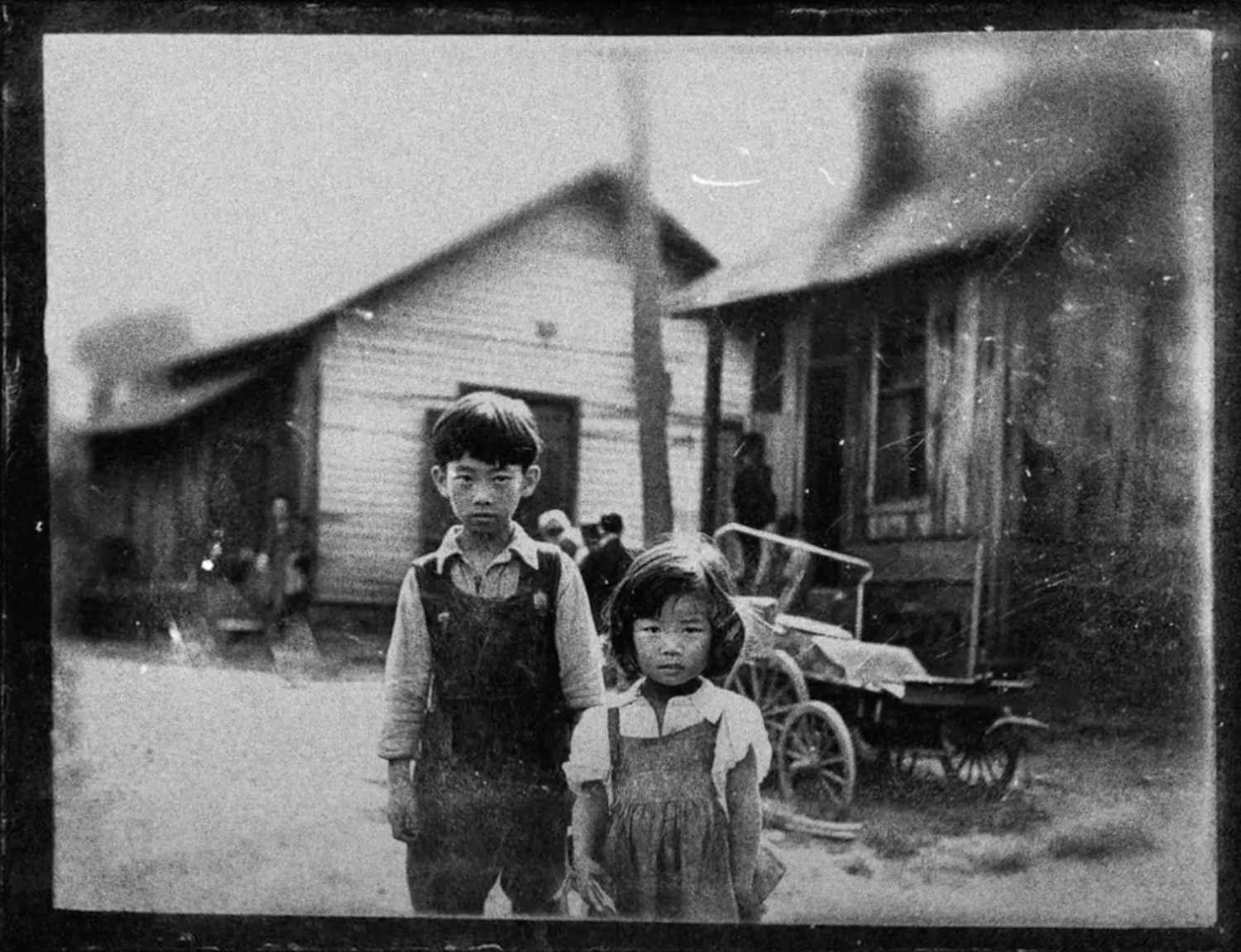
Few Cases—Until the War
At first, California’s Alien Land Law was not widely enforced. Judge Rolfe Thompson of Sonoma County Superior Court turned down one Japanese family’s plea to put its land in the names of its young children, even though they were American citizens, having been born in the U.S. In his decision, the judge asserted the law rightly targeted “the invading horde of brown men.” He cited, approvingly, a racist novel, The Pride of Palomar, in which the white hero warns of the “yellow peril” and thinks Japanese train passengers should be put in “a Jim Crow car.”
In 1915, Jukichi Harada, seeking better living conditions for his family after his young son died of diphtheria in an overcrowded boarding house, bought a wooden frame home on Lemon Street in Riverside, California. He notified all parties that he was putting the title in the names of his three American-born children, the oldest of whom was nine. The Haradas were the first Japanese family on the block. A committee of white neighbors mounted a campaign to force them out before they had even moved in.
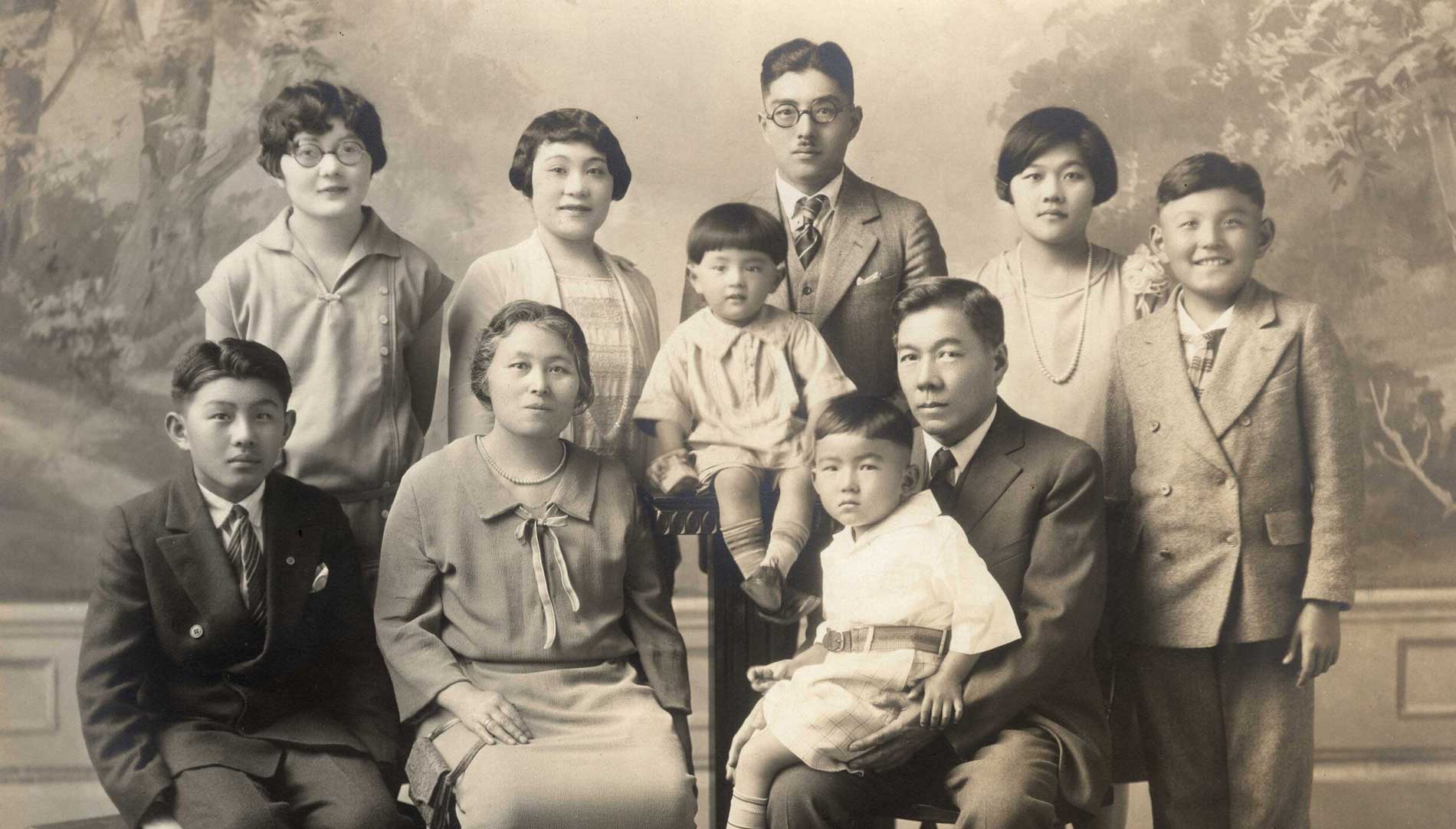
The Harada family. (Harada House Foundation)
Neighbors’ complaints about the Haradas reached Attorney General Webb, who saw an opportunity to test the Alien Land Law—and seize Mr. Harada’s house. The state argued in court that while Mr. Harada had deeded the land to his children, he had purchased it for his own benefit.
In 1918, a San Bernardino Superior Court judge ruled in favor of the Haradas. The children, having been born in the U.S., were protected under the Fourteenth Amendment. “They are American citizens, of somewhat humble station, it may be, but still entitled to equal protection of the laws of our land,” the judge said.
His ruling, however, did not overturn the Alien Land Law, and an amended version of the law in 1920 was aimed at closing what proponents saw as the loophole of deeding property to immigrants’ U.S.-born children. California voters approved that version by a 3-1 margin, after an anti-Asian campaign that included an American Legion-produced movie full of racial falsehoods—including images of Japanese men trying to kidnap two white girls until Legionnaires intervened. Shadows of the West was shown across the state.
Decades after the Haradas’ legal victory, the family was forced to leave their home on Lemon Street, and they were sent to a World War II internment camp. They were among some 120,000 Japanese and Japanese American residents forced into such camps. Jukichi Harada and his wife Ken were in their 60s when they died in a camp in Utah.
Mr. Harada had been denied his dream of becoming a U.S. citizen. “My heart is American,” he told a Los Angeles Times reporter in 1916. “I think American, but the law will not let me become an American.”
A “Surge” of Wartime Prosecutions
Despite the barriers imposed by the Alien Land Law, Japanese farmers were vital to California’s agricultural economy. By 1941, Japanese farmers produced more than 90% of the state’s strawberries, 73% of snap beans, 75% of celery, 60% of cauliflower, and 45% of tomatoes, according to a federal report.
“A surge” in Alien Land Law prosecutions followed Pearl Harbor and continued during and after World War II, according to a 1946 study. All the cases were “directed against persons of Japanese ancestry” and targeted people who had been sent to internment camps.
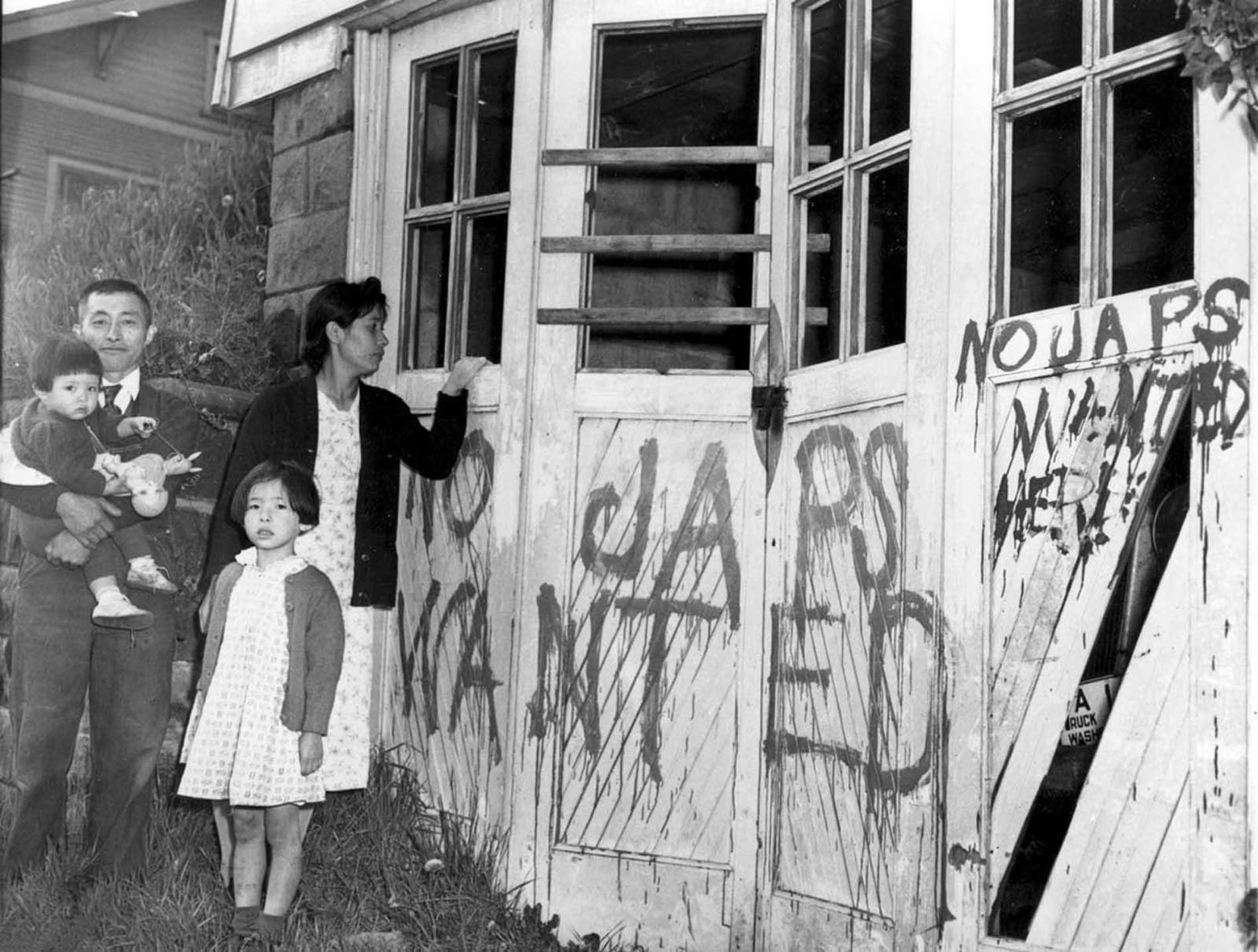
Shigeo Nagaishi and his wife Chiseko, along with their two children, return from a Japanese internment camp to their home in Seattle to find it vandalized, May 10, 1945. (AP Photo)
Fred Oyama, born in the U.S., was six when his father put the family’s Chula Vista vegetable farm in his name. In 1944, with the Oyamas living in an internment camp in Utah, California prosecutors tried to seize the family’s land.
Even after his family was forced into a camp, Mr. Oyama would recall later, he remained intent on proving his loyalty to the U.S. and “looked forward to joining the service.” That is—until the property was escheated.
“I could never be hostile to the U.S.A.,” wrote Mr. Oyama, who had become a middle school math teacher, “but I was bitterly disappointed and felt like a man without a country.”
Mr. Oyama and his lawyers lost in California courts but took their case to the U.S. Supreme Court—which ruled in his favor in 1948. The 6-3 decision gutted the Alien Land Law, and eight years later it was repealed.
Haruye Masaoka tried to buy a small piece of land in Pasadena after she returned from Manzanar, the camp where her family had been interned. She planned to put the deed in her children's names, but the sellers tried to back out of the agreement when it became clear she was Japanese. She sued and won; The California Supreme Court ruled in 1950 that the Alien Land Law violated her Fourteenth Amendment rights.
An Apology
On August 10, 2023, California’s attorney general, Rob Bonta, issued a statement saying his office had used the Alien Land Law against dozens of families while they were “locked away” in internment camps. He said the office “publicly acknowledges and apologizes to Americans of Japanese ancestry for the Office’s role in the unjust deprivation of Japanese Americans’ civil rights and civil liberties during World War II.”
About EJI
The Equal Justice Initiative works to end mass incarceration, excessive punishment, and racial inequality.
About this website
Until we confront our history of racial injustice and its legacy, we cannot overcome the racial bias that exists today.
 Learn more
Learn more